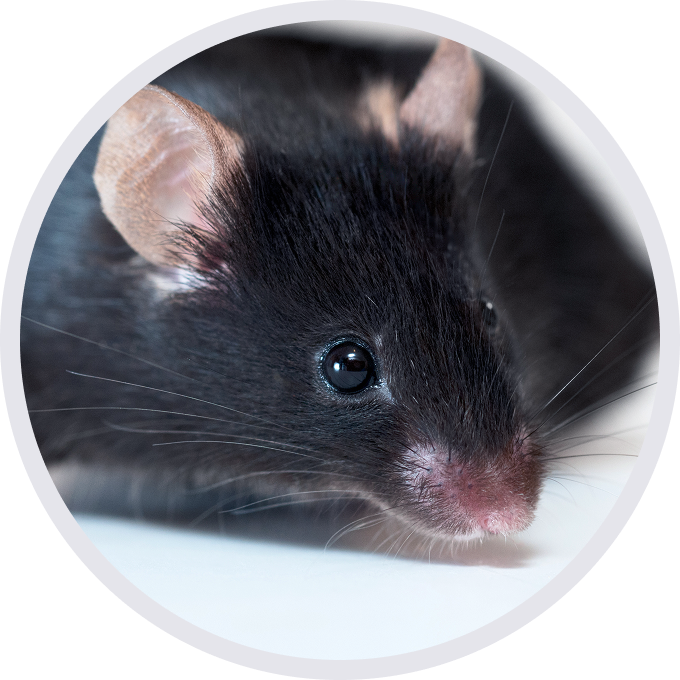


C57BL/6N-Fggtm1(FGG)Bcgen/Bcgen • 112917
| Product name | B-hFGG mice |
|---|---|
| Catalog number | 112917 |
| Strain name | C57BL/6N-Fggtm1(FGG)Bcgen/Bcgen |
| Strain background | C57BL/6N |
| NCBI gene ID | 2266 (Human) |
| Aliases | / |
Fibrinogen is a hexameric plasmatic glycoprotein composed of pairs of three chains (Aα, Bβ, and γ), which play an essential role in hemostasis. Conversion of fibrinogen to insoluble polymer fibrin gives structural stability, strength, and adhesive surfaces for growing blood clots.
Equally important, the exposure of its non-substrate thrombin-binding sites after fibrin clot formation promotes antithrombotic properties. Fibrinogen and fibrin have a major role in multiple biological processes in addition to hemostasis and thrombosis, i.e., fibrinolysis (during which the fibrin clot is broken down), matrix physiology (by interacting with factor XIII, plasminogen, vitronectin, and fibronectin), wound healing, inflammation, infection, cell interaction, angiogenesis, tumour growth, and metastasis.
Protein expression analysis in plasma
Gene targeting strategy for B-hFGG mice. The exons 1-9 of mouse Fgg gene that encode the whole molecule (ATG to STOP codon), including 3’UTR were replaced by human counterparts in B-hFGG mice. The promoter and 5’UTR region of the mouse gene are retained. The human FGG expression is driven by endogenous mouse Fgg promoter, while mouse Fgg gene transcription and translation will be disrupted.
